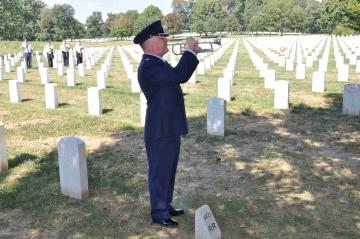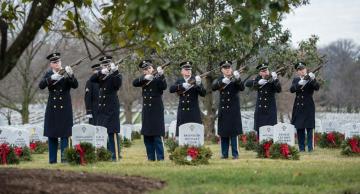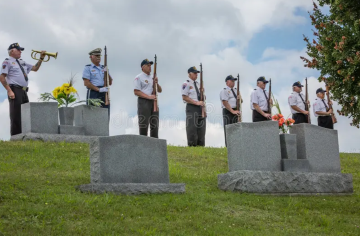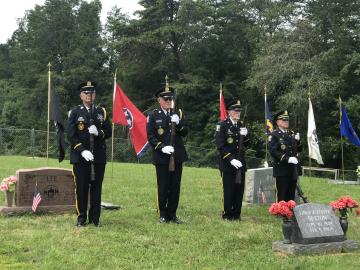Taps
The bugle call known as Taps dates from the Civil War. In July 1862, while the Army of the Potomac camped near Harrison's Landing, Virginia, Brig. Gen. Daniel Butterfield summoned Pvt. Oliver Willcox Norton, his brigade bugler, to his tent. Butterfield, who disliked the bland "lights out" call then in use, whistled a different tune and asked the bugler to play it for him. After repeated trials, Norton played a 24-note call which suited the general.
- Read more about Taps
- Log in or register to post comments



